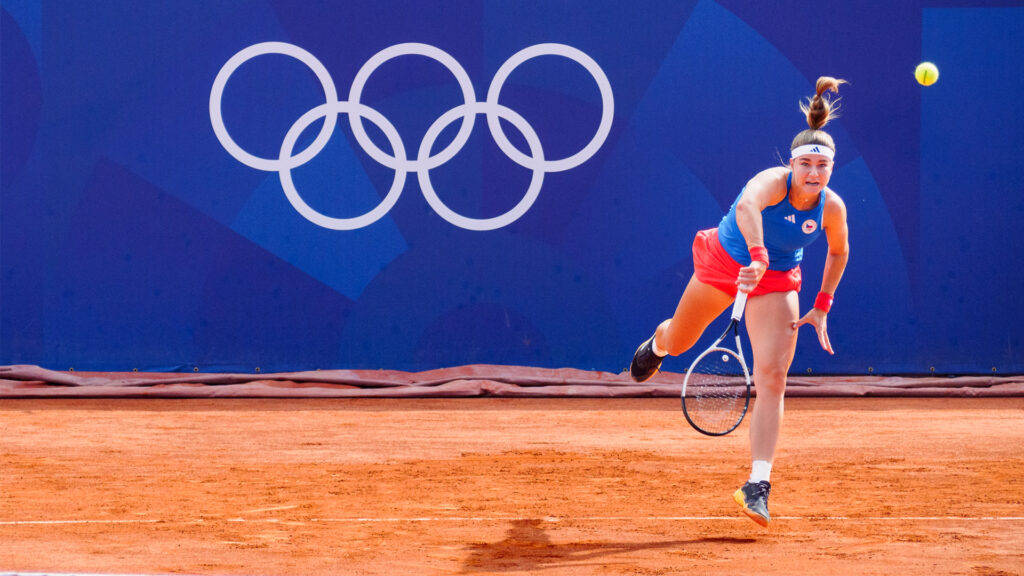By Thais Lopez Vogel, VoLo Foundation
The 2024 Summer Olympics in Paris spotlights the impact of climate change on global events, particularly sports. As athletes and spectators alike grapple with increasingly extreme weather conditions, it has become clear that the fallout from climate change is not an abstract concern — it is a pressing reality affecting every facet of our lives.
During the first week of the Games, the Los Angeles Times reported that “weather has been a challenge,” with conditions “veering from one extreme to another.” Athletes are suffering under the heat; Gymnastics superstar Simone Biles and others have been affected, with one tennis player describing the conditions as “crazy.” Sailors in the regatta have resorted to wearing ice vests to stay cool, while the rowing competition came close to being suspended due to high temperatures.

Spectators too are feeling the heat. Fans at the beach volleyball matches near the Eiffel Tower were doused with hoses to help cope with the sweltering conditions. At skateboarding and other venues, misting fountains have been installed and millions of bottles of water have been distributed at train and Métro stations to prevent dehydration.
The extreme weather has not been confined to the Olympics and France alone. According to the World Weather Attribution, countries like Greece, Italy, Spain, Portugal and Morocco have faced severe heatwaves in July 2024, resulting in at least 23 fatalities, widespread wildfires and a significant disruption of daily life. The triathlon competition was postponed due to the risk of contamination in the Seine River, further underscoring the tangible effects of climate change on the sports world.
These events make clear that climate change is no longer a distant threat but a current crisis affecting every corner of our existence. The sports industry is particularly vulnerable, with athletes facing health risks, competitions being disrupted and spectators experiencing discomfort and potential harm.
The root cause of these escalating problems is human-induced climate change. Greenhouse gas emissions from industrial activities, transportation and deforestation are driving the planet’s temperature up, leading to the extreme weather events we are witnessing today.

To address these challenges, a multifaceted approach is required. Reducing greenhouse gas emissions is paramount; this involves transitioning to renewable energy sources, enhancing energy efficiency and supporting policies that aim to limit carbon footprints. On a personal level, responsible consumption and recycling can also make a difference. Everyone’s choices — whether in reducing waste, conserving energy or opting for sustainable products — contribute to a broader effort to combat climate change.
The sports industry, with its global reach and influence, can play a significant role in this endeavor. By adopting sustainable practices, promoting environmental awareness and advocating for climate action, sports organizations can help lead the way in addressing the climate crisis.
The 2024 Summer Olympics have provided a glimpse into the future if we fail to act. It is time for all of us — athletes, fans and policymakers — to recognize the urgent need for change and to take meaningful steps to secure a livable future.
Thais Lopez Vogel is the cofounder and trustee of VoLo Foundation, a private family organization that exists to accelerate change and global impact by supporting science-based climate solutions, enhancing education and improving health. This piece was originally published at https://volofoundation.org/news/climate-change-a-game-changer-for-sports/.
If you are interested in submitting an opinion piece to The Invading Sea, email Editor Nathan Crabbe at ncrabbe@fau.edu. Sign up for The Invading Sea newsletter by visiting here.



